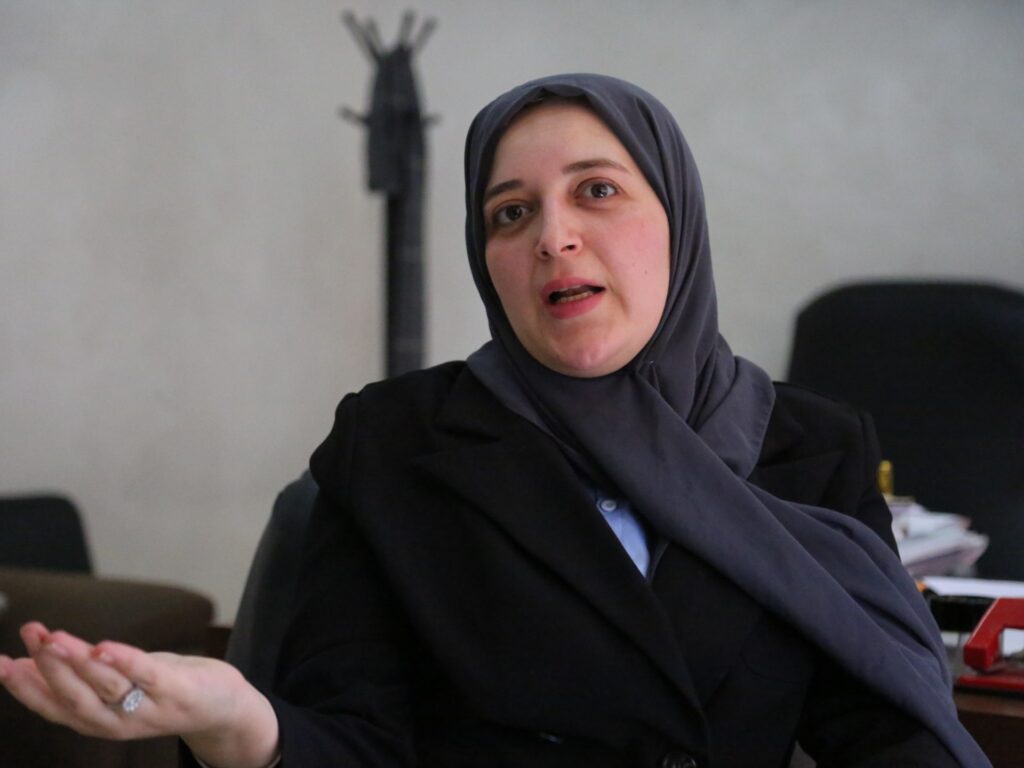Hebron, occupied West Bank – When the headlines started dropping that Canada, then the United Kingdom, then Australia, then Portugal, then France had formally recognised Palestinian statehood, Palestinian reactions ranged from joy to dread that Israel would take this as a cue to target them more violently.
More than 150 countries now recognise the State of Palestine.
Recommended Stories
list of 3 itemsend of list
Al Jazeera spoke to three Palestinians in and around Hebron in the occupied West Bank to ask them how they view the recent developments.

Adel Shadid, Dura
Adel Shadid, 59, is a researcher specialising in Israel and Zionism who spoke to Al Jazeera in the hills overlooking Dura, which lies just southwest of Hebron.
He spoke of what he called the “partial historical correction” of Britain recognising the Palestinian state after it issued the Balfour Declaration a century ago and laid the foundation for the Nakba, or “catastrophe”, the mass Palestinian displacement during the establishment of Israel.
He also believes that the recognitions undermine the Israeli narrative that denied the existence of a Palestinian people and increase Israel’s political, economic and moral isolation as countries speak out against Israel’s genocidal war in Gaza and land seizures.
“This shift in the positions of a number of countries, … now more than 10, including major European countries with permanent seats on the [United Nations] Security Council, such as France and Britain, represents a shock to Israel, because these are the same countries that contributed to the establishment of the Zionist project from its inception. That this recognition comes despite the Israeli position is a direct challenge to it.”
Shadid believes this recognition not only reflects countries’ conviction in the Palestinian people’s right to a state but also a negative shift in the West’s view of Israel, which has long presented itself as an extension of Western civilisation in the Middle East.
However, he added, Israel has been working to destroy the possibility of a Palestinian state for years.
“Even if the entire world recognises Palestine, without a homeland, land and geography, the state will remain ink on paper. This is why [Israel] has escalated its confiscations [of Palestinian land] and illegal settlement construction,” he said, pointing also to Israel’s attempts to dismantle the Palestinian Authority.
Shadid concluded by saying the Palestinian people will not soon see the results of Sunday’s and Monday’s recognitions because Israel continues its oppressive policies of land confiscation, killing and annexation, sending a message to the Palestinians: “What has this recognition brought you?”
But he added confidently: “Power has limits, and what Israel is doing will not last long.”

Raed al-Saeed, Hebron
Raed al-Saeed, 50, sells coffee and talks to people all day at the central market in Hebron.
He spoke of his gratitude to Palestinian Authority (PA) President Mahmoud Abbas, saying his efforts led to more countries recognising the Palestinian state with Jerusalem as its capital.
Al-Saeed said he feels the most important step for the Palestinian people would be when the United States recognises the Palestinian state and they are waiting for that.
Because al-Saeed spends a lot of time talking and listening to people, he feels he has a good idea of the range of reactions from people around him every day.
While some are optimistic about the recognitions, others are worried and pessimistic, fearing that Israel’s reactions could target every Palestinian and make life even worse for them.

Maram Nassar, Hebron
Maram Nassar, 31, is a specialist in constitutional and international law, and she sees myriad possibilities in this latest development.
She believes that the recent recognitions are not a spur-of-the-moment decision but rather the result of a long process in light of the catastrophes and famine that Gaza is experiencing.
Politically, she said, adding these countries to the list of those that already recognise Palestine only strengthens Palestine’s position on the international stage, gives it additional power in negotiations and may force Israel to abide by UN and Security Council resolutions that it has ignored for decades.
Diplomatically, this will allow Palestine to establish more embassies and expand its diplomatic outreach further, she said.
Economically, this could lead to an expansion of the boycotts of Israeli products, constraining trade with Israel and opening channels of direct financial support for the Palestinian people, especially in light of Israel pressuring the PA by withholding clearance revenues and taxes from it, she said.
However, Nassar worries it is possible that the US and Israel may pressure some countries to withdraw their recognitions, which could scare off other countries in turn.
However, she sees Britain’s recognition especially as a crucial shift because, she said, it reduces the power of the occupation and strengthens the establishment of a Palestinian state.
While more international recognition of the Palestinian state could be a historic turning point that opens new horizons, she said, it could also pose significant challenges, namely the escalation of Israel’s continued on-the-ground policies aimed at undermining any possibility of establishing a viable Palestinian state.

